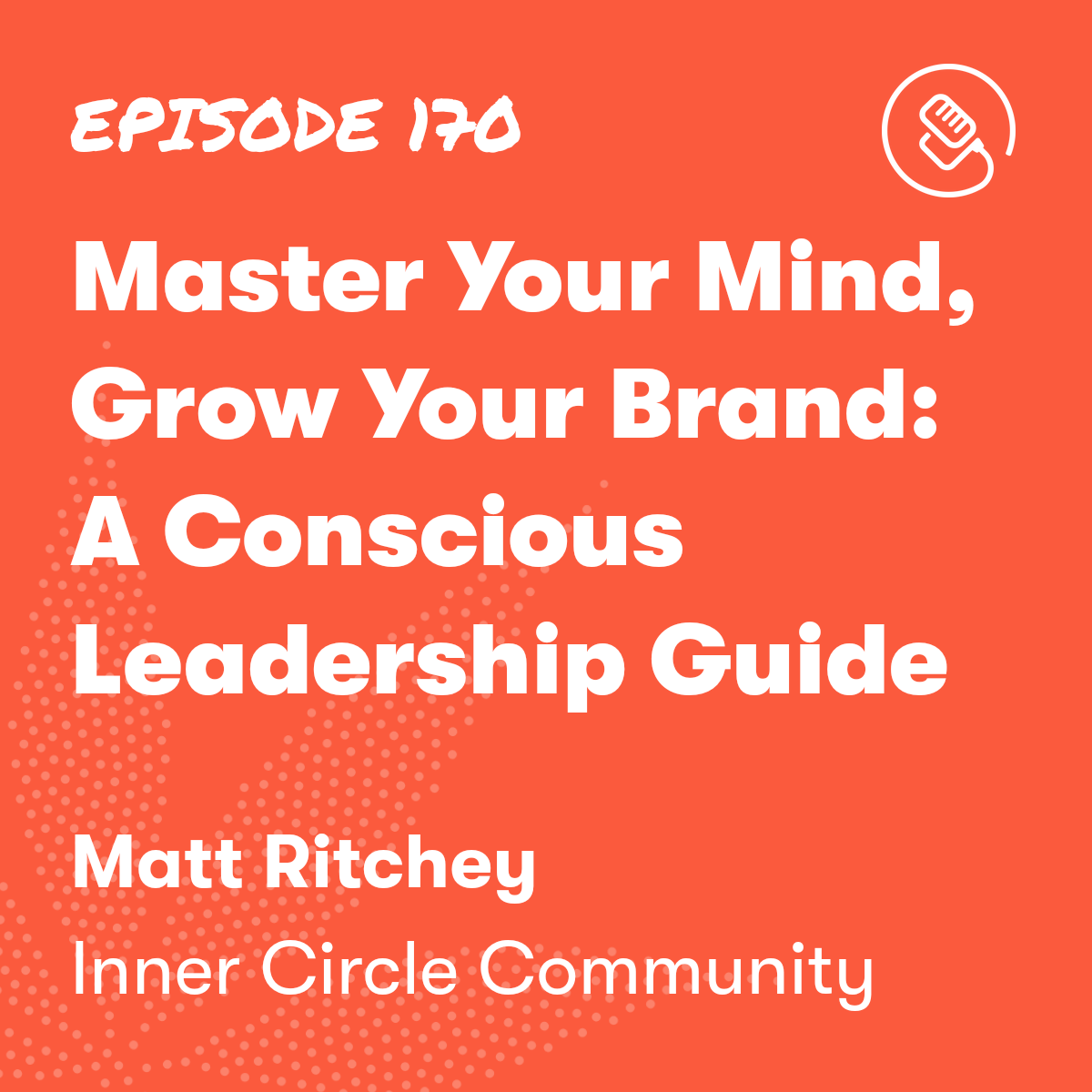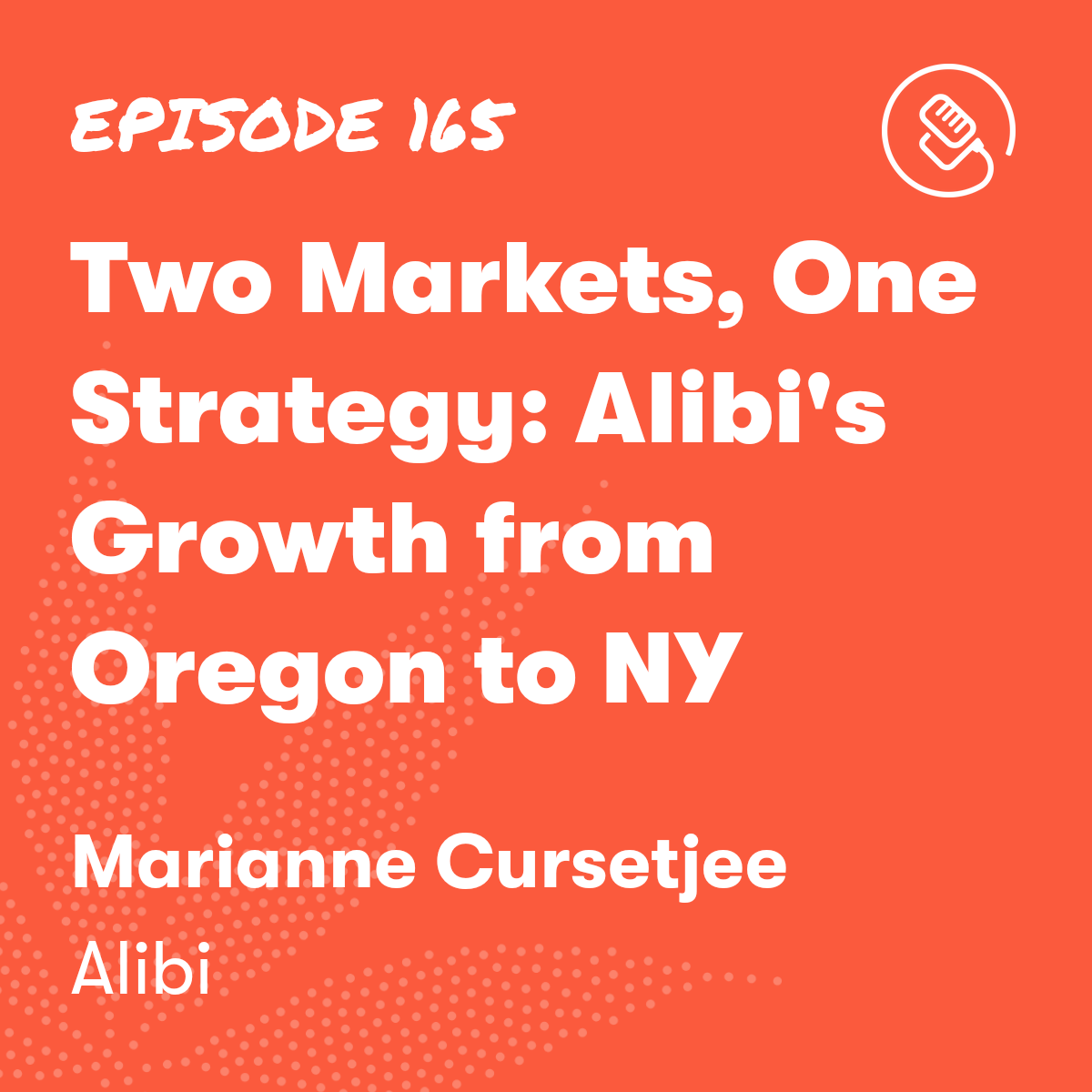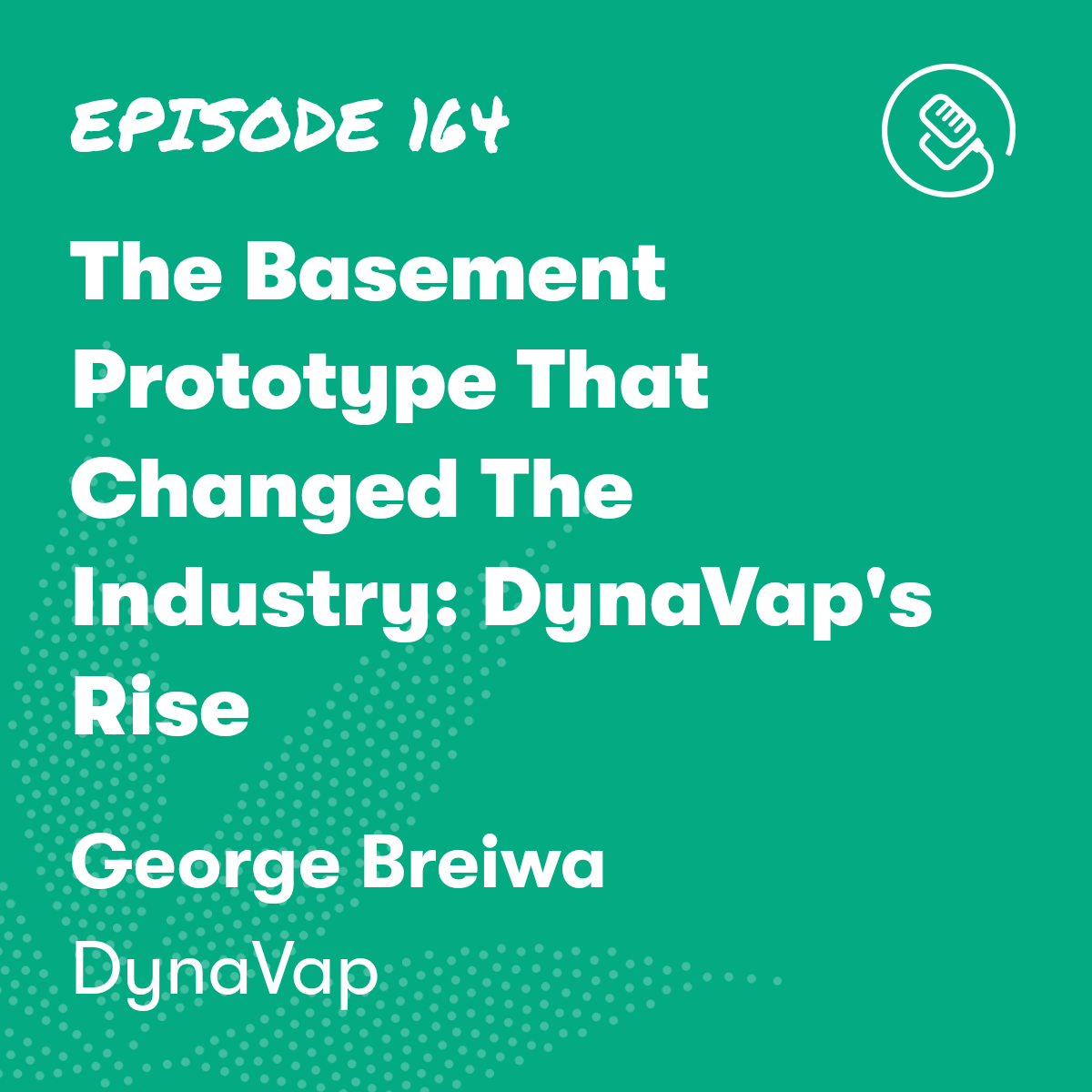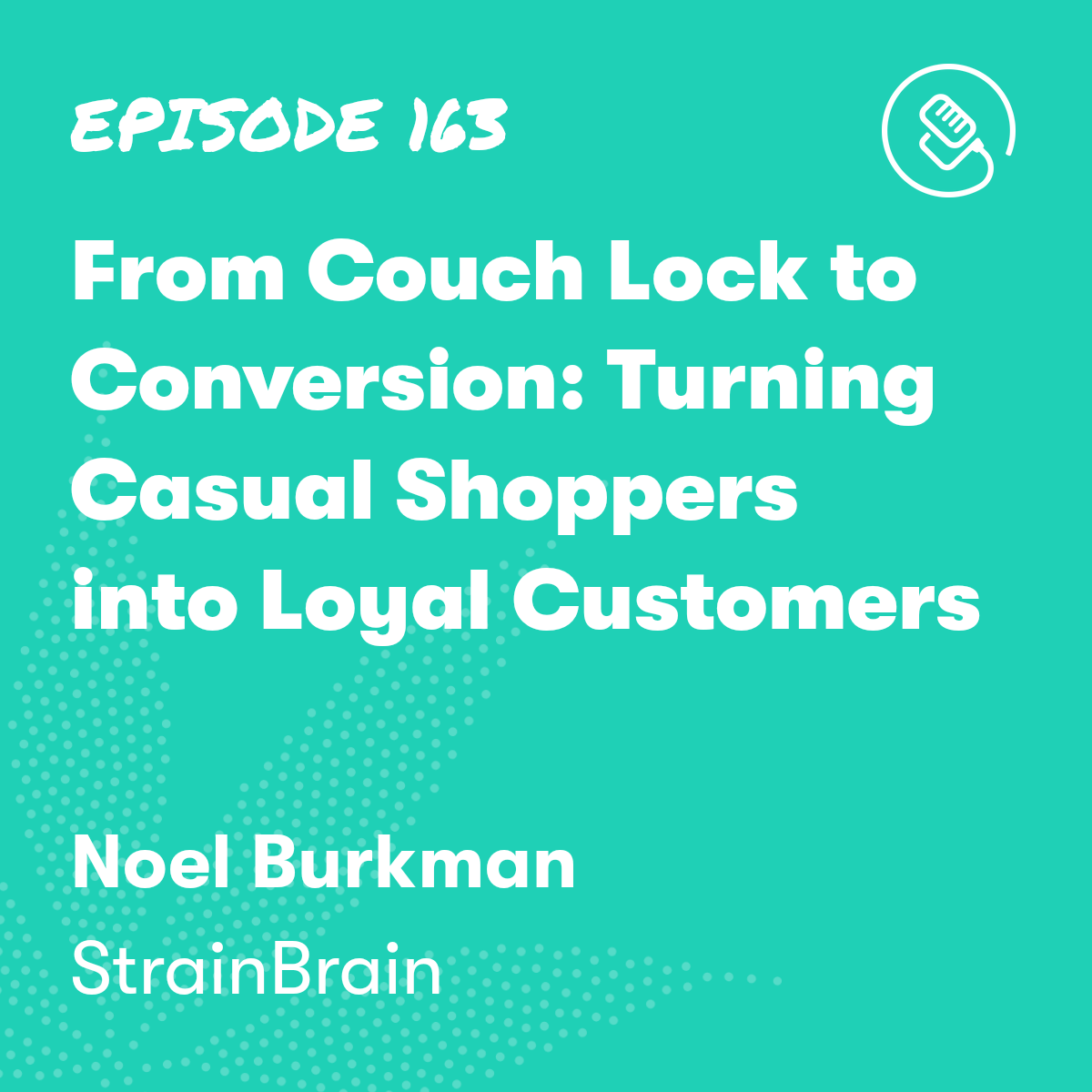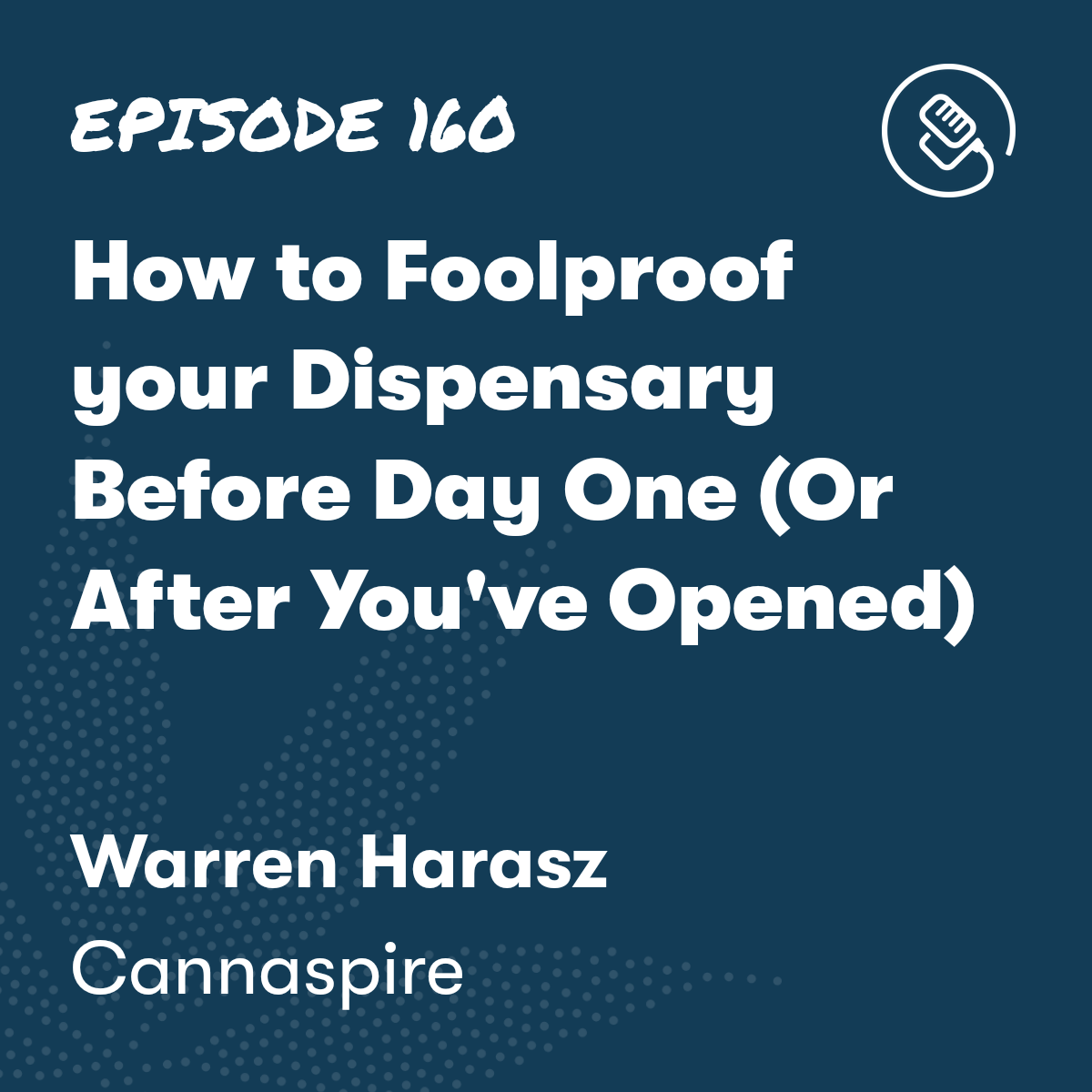

The Importance of Due Diligence in Cannabis Partnerships
Episode Description

Episode Transcript
Alana Hans Cohen: Make sure when you build your team, whether that's your business partner, whether that's the people who are gonna assist you through this process, do your due diligence
Welcome back to the Kaya Cast podcast. I'm your host, Tom Mulhern, and this is the podcast for cannabis businesses helping you to launch, grow, scale your business. And today I have a conversation with Alana Hans Cohen, who is a self-proclaimed cannabis nerd, and a attorney with Pashman Steiner and Hayden, who is specializing in cannabis law.
Alana is passionate about cannabis. She's a passionate about diversity in the industry, and she's passionate about helping businesses set up strong set up so that they can succeed. And so my conversation with Alana went into a whole bunch of different important things that business owners need to know, including, you know, doing your due diligence.
And you're gonna hear her say this over and over again in this podcast. You need to do your due diligence. On your business partners, do your due diligence on the contracts you're signing. And there are so many people out there that know nothing about cannabis, but they see a green rush and they're coming after these small businesses.
And Alana's encouragement is for businesses to be really careful and to take the time to know who they're getting in bed with. She actually compares a partnership whether it's a business partner or any sort of partner you bring into your business as a marriage. And just like in any marriage, you have to do the hard work if you're gonna be successful.
We also talked about the differences between West Coast Weed and East Coast Weed, specifically New York and New Jersey, and how things are different, and what you need to know if you're setting up a business in New York or New Jersey.
So let's jump right into this show
Tom Mulhern:
Alana Hans Cohen is a passionate cannabis attorney licensed in six states across the US. As part of the cannabis group at Pashman Stein Walder Hayden, Alana is a self-proclaimed cannabis nerd who specializes in navigating the complex world of cannabis law and policy. As an expert in the field, Alana has an impressive career helping businesses navigate the complex world of cannabis law and regulations.
She's not only a strong advocate for our clients, but also a champion for greater diversity within the industry.
So Alana, welcome to the Kaya Cast Podcast. It's fantastic to have you on the show, and I'm really excited to hear more about what you're doing in this industry.
Alana Hans Cohen: Well, I appreciate it, Tom, and you flatter me. Thank you for the lovely introduction. So I'm excited to be here with you and talk all things cannabis.
Tom Mulhern: Let's start with your background. So what is your background and how did you end up in the cannabis industry?
Alana Hans Cohen: I am technically a former high school dropout and juvenile delinquent that was too in love with cannabis at a time when it was illegal. I went and got my G E D and I'm like, you know, I wanna be a lawyer for whatever reason.
I figured that was gonna be the best way for me to be able to help people. And when I went into law school, that's kind of when New York and New Jersey seemed like there was a possibility for legalization here.
As you can imagine law school being a bit more of a conservative environment, you know, people weren't as outwardly interested in cannabis and so I was that weird weed girl and it just worked for me and, you know, I just hustled as much as I could in the space to find a place for myself.
Tom Mulhern: So was that passion for cannabis, the reason you chose cannabis law? After law school you could have gone a million different directions like why land in cannabis?
Alana Hans Cohen: Cannabis and the law reminds me a lot of things like crypto and the law. And the reason I mention that is because both of these items are new emerging topics and the fact that they are new and emerging, there's no precedent. It's not stuff that, you know happened in 1825 that we have to worry about.
Like this is stuff that we can make the change in and we actually, you know, set the law, which is kind of cool.
Tom Mulhern: What are some of the, the biggest issues that cannabis businesses should be aware of ?
I would say, for people who already operate in another legal state and are coming to New Jersey particularly people from not the Northeast, so West coast and all of that.
Alana Hans Cohen: They think that it's the same. It's not the application process. Like in the Northeast, we tend to be a lot more of advocates, more into the social equity and the diverse into these things, you know, and we hold people more accountable, the advocates. And I find that when I get my West Coast clients, they're like, is this for real?
And I'm like, yes, it is for real. Like this is, we care about these things and it is gonna benefit you later.
Another thing that I see a lot often, especially in newer markets starting is business marriage, divorces. You shouldn't really start a cannabis company with your friend because you're very likely not to be friends in the end.
Say you and I get into business together, we put in our application, by the time we get our approval for our application, we wanna separate. So it's like, know who you're going into business with.
You know, probably don't go into business with your best friend or your family member. I mean, works for some people. I'm not saying that, but I just see a lot of people don't think about your business partnership as a marriage, and it really is a marriage. You're gonna have to deal with this person forever. As long as your your business baby is alive, you're gonna have deal with them.
Tom Mulhern: How do you navigate those complexities of working in different states and like you said, different cultures.
We've got west coast, we've got east coast. I mean, it takes it back to the, the rap battles of West coast, East Coast, but how do you navigate that and what are some of those similarities and differences that you find?
Alana Hans Cohen: Definitely the culture is the biggest difference for sure.
And I would probably say like thesteps you have to do as far as, you know, I feel like in New York and New Jersey, the paperwork stack is a bit more intense than on the West coast side.
Tom Mulhern: What are the differences between how New York's doing it and how New Jersey's doing it. Like are there some major differences there?
Alana Hans Cohen: So there are major differences, but there are a lot of similarities because as you know, New York and New Jersey, they like to play that,who can one up the other one kind of game. So that's why New York's always saying, oh, we need the best social equity. The other side, well, we got our program rolling faster.
So, you know, the states just like to argue with, with each other. But what I will say, one of the biggest things would be the ownership restrictions because in New Jersey, you are able to own a vertical, a full vertical so you would be able to own, you know, from retail to cultivation, you know, and anything in between.
New York you cannot do that. if you own on the retailing side, that would be like your retail, your consumption, whatever you cannot own on the supply side, which would be your. cultivation, your manufacturing, et cetera. Versus in New Jersey, you know, like you can own one of each, but only one set.
So in New York, like I could own three retailers, but I can't own a retailer or cultivate unless I'm in micro business. Of course, New Jersey has micro businesses as well. New York's is slightly different. New York's currently requires cultivation,
which kind of can be a bit of a pain if you don't wanna be a grower.
Tom Mulhern: How do you help cannabis businesses navigate that startup and while staying compliant?
What are some of the biggest pitfalls that you see these license applicants and license holders make?
Alana Hans Cohen: There's a lot of fakers and a lot of liars out here. And I think that's one of the biggest things that people, you know, are making mistakes on and should watch out for, is doing your due diligence on your team. You need to build your team of whoever you know, whether you have a lawyer, a operator.
Make sure they've actually done something in the space. Don't just believe what people say. Check references, because I've seen too many people get screwed. Because of stuff like this. Just because someone says that they've done something, like have them explain it to you further. Like give you an example, check that reference, make sure it's true.
Because there are a lot of people taking advantage of a lot of people, you know, small businesses and large businesses as well. And people are losing a lot of money on things like that. And I think that it's definitely a big mistake that I deal with a lot.
Tom Mulhern: Do you find that there's a lot of predatory lending happening in the cannabis space, and what are you doing to kinda help protect your clients from that?
Alana Hans Cohen: I mean, you're gonna see simple predatory stuff, which is just like, I see tons of insanely high, interest rates. Or like ones where there's, say a minority or a woman-owned business, and like when you have a minority or woman-owned business, you technically have to own it for two years.
You can't sell more than 49%. In those two years and like they're setting up agreements with people, like basically pre-selling the business, but it's not gonna be officiated until they actually do the thing. And a lot of it just seems really funky and just not on the up and up. And I always try to tell people if it seems sketchy, it probably is.
Tom Mulhern: one little tidbit for everybody. Always know that in every state there is a list of lawyers by the state bar. So whatever state you live in, I don't care if it's Minnesota, you can literally Google Minnesota attorney search and then just look for the state affiliated website and then search your attorney's name.
Alana Hans Cohen: If they do not show up, they're not an attorney in that state. Or they may not be an attorney anywhere, you know, so you may have to check other states.
But definitely look for the resources available in your state and have people look over your documents because fine print is crazy and sometimes the person who gave you the document doesn't even know what it says.
Now looking towards the future, how do you envision the cannabis industry evolving over the next, you know, few years maybe, maybe the next five years, And what potential changes should business owners prepare for?
I don't wanna say in the next five years, or maybe not even in the next 10 years 'cause it's just hard to say, but like, I'm really waiting on this federal legalization because that's gonna make a lot of changes.
You know, whether it be IP protections that you'd be able to get now, or interstate commerce or just easier access to banking, which a lot of people think you can't get banking, but you can get banking. It's just really hard and like, not a lot of people wanna do it. So like, these things are gonna make it easier as well as allowing for SBA loans.
Because cannabis businesses, because of no federal legalization, they have no access to that. And the fact is, is most businesses in America that are a small business start from SBA loans. Like people don't realize that like most banks are not, do not offer money for startup businesses. You know, all those banks that just dropped, I think it was like Signature Bank and Silicon Valley Bank.
Those were the banks that offer money to startups. Those were the ones that went outta business. Most normal banks Chase, Bank of America, like they're not, they give money to people who have money. Not like the people starting up unless you have collateral, you know, assets, houses, whatever. When we get federal legalization, whether that's definitely not gonna be in five years, if it happened in five years, like I would jump for joy.
But I think that's gonna make a huge change in a lot of the stuff that causes headaches for business owners currently.
Now looking at the landscape today, what do you think is the most pressing legal issue facing the cannabis industry?
I would probably say the inability to access financing. Which again goes back to the federal legalization issues, you know, and SBA loans and all of that. Even with these reduced rates for application fees and different things like that, you know, Not having access to some sort of capital even to get the product, it's gonna cause a lot of barriers for a lot of people.
If me and you, Tom, started our cannabis business today, I know I don't have friends and family with tons of money to, to gimme money. So imagine somebody who comes from, you know, a way more like where their family has been to jail for different drug charges.
So there's definitely no generational wealth or even assets, and I think that's going to really make a difference in opening the industry to different types of people, not just pale male and stale.
Tom Mulhern: That is the future of the industry is moving beyond people with just the money the people with that are set up, that have the money to just jump in there. They don't know anything about the product. They're not passionate about it. I'm in the same boat as you.
I'm hoping that it's a more diverse industry. This is the last question, but what is one tip that you would have for a cannabis business to launch scale or grow their business?
Alana Hans Cohen: I would probably have to go back to building your team. make sure when you build your team, whether that's your business partner, whether that's the people who are gonna assist you through this process, do your due diligence Don't just sign contracts for things and you know, all of that.
Whatever you're doing, just do your due diligence, make sure it's gonna work. Make sure you guys are all on the same page and that you all can find a way to work together because everyone works differently. build your team. And put thought in into it because there are a lot of liars. That's all I'm saying. It's a lot of liars.
Tom Mulhern: Alana, how, how can people connect with you and, you know, find out more about all of the different organizations you're a part of your job as a lawyer, like how can people connect with you and, find out what you're doing?
Alana Hans Cohen: So you can find me on LinkedIn Alana Hans Cohen, and then I'm the underscore bankruptcy underscore attorney on Instagram. I work for Pashman Stien Walter Hayden. You can go to my law firm's website and hit me up.
Like I said, I'm always happy to talk about geeky cannabis stuff. Like it doesn't always just have to be business. And yeah, I mean, anybody who reaches out, I'm happy to, like I said, happy to chat and connect with anybody to talk cannabis or other stuff if they're cool.
Tom Mulhern: Well, thank you so much for taking this time. This has been really enlightening and I think you know. Anytime I talk to someone that has a passion for equity like yourself, I just get like pumped up and I'm like, let's go. Let's get out there. Let's make a change. So I'm so grateful for the work that you're doing, and I know that the industry is gonna be better because of what you're doing, so keep at it.
Alana Hans Cohen: Thank you, Tom. Seriously, it's been such a pleasure. Like. Good convos with you always. So now people can see our great combo, but I appreciate it. Seriously.
What a fantastic conversation. And you know, I know coming out of that interview. It's just ringing in my head of doing my due diligence. If I was a business owner setting up a business in New York, New Jersey, California, any of these states, I would come out of that thinking I have to do my due diligence with my business partner, with the lawyers that I'm bringing on with my tech companies, you know, bringing in people who are passionate about cannabis, who are out to see the industry grow, see your business grow, and aren't out there as predators, trying to prey on new business owners who may not have that experience.
And so I want to thank Alana, and, you know, definitely check out her her website, check out the different organizations that she's a part of. We have all the links in the bio, so make sure you go check that out.
I also wanna encourage you to head over to kayacast.Fm and check out past interviews that we've done with amazing people like Alana. We have interviews with compliance people. We have interviews with CEOs. We have interviews with accountants.
Everyone who's working in this industry to see businesses like yours grow scale, and you know, we're here. This whole podcast, the whole point of this podcast is to see businesses like yours thrive. And so head over there, subscribe to the podcast, and we are so excited for everyone who checks out the podcast and wants to be a part of what we're doing.
So thanks again for listening and tune in next week for more conversations like this on the Kayak Cast podcast.

